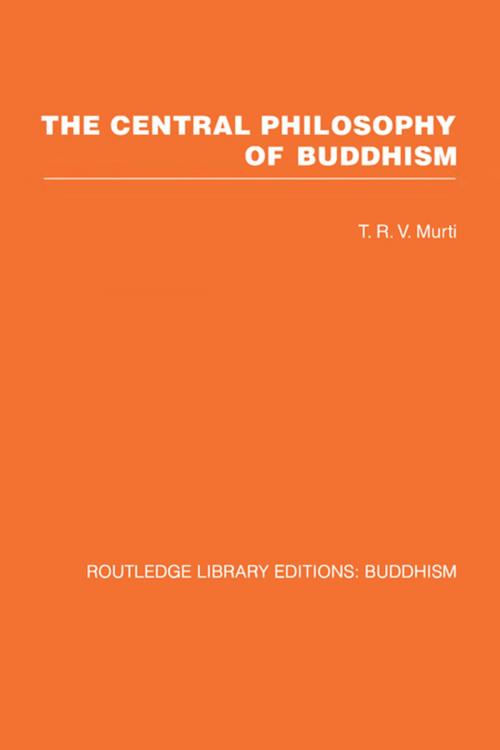The Central Philosophy of Buddhism
A Study of the Madhyamika System
Nonfiction, Reference & Language, Reference, Social & Cultural Studies, Social Science, Religion & Spirituality| Author: | T R V Murti | ISBN: | 9781135029456 |
| Publisher: | Taylor and Francis | Publication: | May 13, 2013 |
| Imprint: | Routledge | Language: | English |
| Author: | T R V Murti |
| ISBN: | 9781135029456 |
| Publisher: | Taylor and Francis |
| Publication: | May 13, 2013 |
| Imprint: | Routledge |
| Language: | English |
Originally published in 1955.
The Madhyamika philosophy is, in the author’s view, the philosophy which created a revolution in Buddhism and through that in the whole range of Indian philosophy. This volume is a study of the Madhyamika philosophy in all its important aspects and is divided into three parts:
Historical: this traces the origin and development of the Madhyamika philosophy.
The second part concentrates on a full and critical exposition of the Madhyamika philosophy, the structure of its dialectic, its conception of the Absolute and its ethics and religion.
The last part of the book compares the Madhyamika with some of the well-known dialectical systems of the West (Kant, Hegel and Bradley) and undertakes a short study of the different absolutisms (Madhyamika, Vijnanavada and the Vedanta).
Originally published in 1955.
The Madhyamika philosophy is, in the author’s view, the philosophy which created a revolution in Buddhism and through that in the whole range of Indian philosophy. This volume is a study of the Madhyamika philosophy in all its important aspects and is divided into three parts:
Historical: this traces the origin and development of the Madhyamika philosophy.
The second part concentrates on a full and critical exposition of the Madhyamika philosophy, the structure of its dialectic, its conception of the Absolute and its ethics and religion.
The last part of the book compares the Madhyamika with some of the well-known dialectical systems of the West (Kant, Hegel and Bradley) and undertakes a short study of the different absolutisms (Madhyamika, Vijnanavada and the Vedanta).















